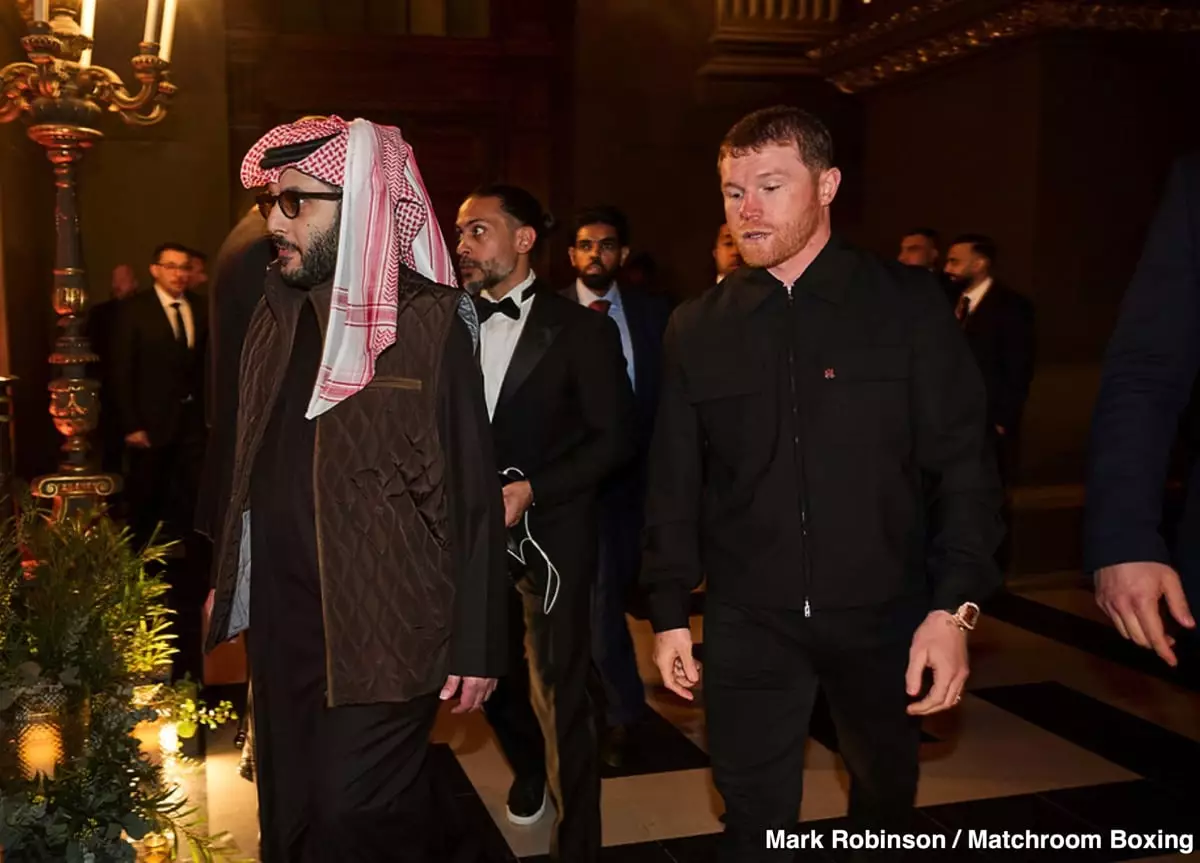Canelo Alvarez is on the brink of not just defending his legacy but reshaping the landscape of boxing through monumental earnings. In the lead-up to his high-stakes bout against William Scull, and subsequently Terence Crawford, Alvarez stands poised to potentially double his already impressive net worth. According to Mikey Garcia, a respected voice in the boxing community, Alvarez could rake in as much as $400 million soon, demonstrating a seismic shift in the motivations that drive many professional athletes. This transition from competing merely for accolades and titles to chasing unthinkable financial rewards offers an intriguing commentary on modern sports.
Garcia’s insights suggest that Alvarez, already a decorated champion, is now fueled less by the pursuit of legacy and more by financial stability—not just for himself, but for future generations. While many athletes strive for world titles and record-breaking achievements, Alvarez seems to have reached a point where those accomplishments gleam less brightly than the prospect of significant financial gain. He has collected titles throughout his career; it is no longer the belts that keep him in the ring but the tantalizing figures that accompany upcoming fights, particularly in lucrative markets like Saudi Arabia.
Canelo’s Marketability: The Power of Promoters and Big Capital
In an age where the financial aspects of sports frequently overshadow the pure athletic competitions, Alvarez’s upcoming fights exemplify a broader trend in professional boxing that favors profitable showdowns over traditional rivalries or title fights. Mikey Garcia’s assertion that Alvarez is not merely fighting for the glory of securing an undisputed championship encapsulates the new era of boxing dominated by staggering contracts and promotional tactics.
His upcoming clash with William Scull is not about legacy but about making strategic financial moves that align with Alvarez’s staggering marketability. With connections to high-stakes partnerships, especially within the context of the Riyadh Seasons, the ideal of a fight isn’t just one of physical prowess—it’s a business proposition where investors, promoters, and athletes stand to gain massively. As Alvarez’s fights bring in substantial revenue, they reflect a broader shift in how fighters perceive their worth and marketability.
Risk and Reward: The Path to Financial Glory
While the allure of $400 million is undoubtedly enticing, where does this leave Alvarez in terms of competitive integrity? Garcia highlights that to achieve such financial heights, Alvarez would need to take on riskier fights against formidable opponents like Dmitry Bivol, Artur Beterbiev, and David Benavidez. This scenario poses a challenging dilemma: will the relentless pursuit of wealth compromise the integrity of boxing as a sport? When financial intentions become the primary motivator, it can overshadow the athleticism and skill that initially drew fans to the sport.
Moreover, Alvarez’s bout against Crawford might not simply be a personal milestone, but rather a demonstration of how today’s athletes can leverage their celebrity status for monumental payouts. It’s a delicate balance, one where the stakes are defined as much by financial returns as by competitive spirit, and the implications of this shift could echo throughout boxing for years to come.
The Future Landscape of Boxing: Is Money the New Title?
Canelo Alvarez’s impending financial juggernaut marks a transformative time in boxing, where skill and tenacity might soon be eclipsed by the economic dialogue surrounding athletes. On one hand, financial aspirations have led Alvarez to fight in arenas filled with lucrative sponsorship deals, but on the other, it raises questions about the genuine spirit of competition. If the future of boxing hinges on generating wealth rather than claiming titles, it could fundamentally reshape how fans perceive the sport.
For future boxers, this could set a precedent where financial earnings become the primary goal, redefining success in a sport traditionally characterized by its competitive heart. As Alvarez continues to break barriers, he’s challenging a generation of athletes to view their careers through a lens of economic sustainability and generational wealth, potentially altering how fighters strategize their paths moving forward. Whether this trend is ultimately beneficial or detrimental to the sport remains to be seen, but it’s a narrative that’s growing more prominent with each passing bout.

